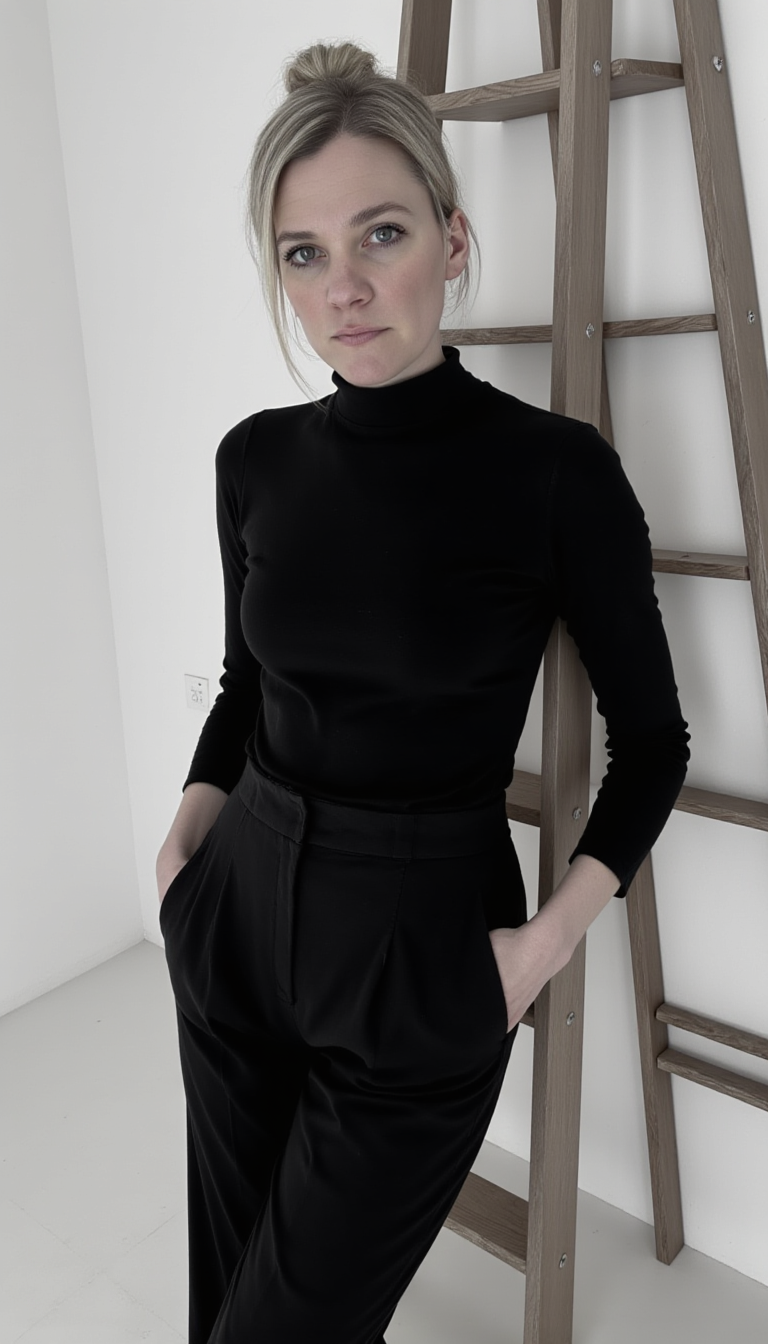The Imposter Syndrome Resolution Intensive
A One-Day Therapy Intensive for Business Leaders Who Worry That Their Success Has Been More Luck Than Skill
Serving professionals in all of Massachusetts, Washington State, Oregon, and Florida
Confidence That Matches Your Competence
Ending Imposter Syndrome for Business Leaders & Entrepreneurs
Imposter syndrome isn’t just a pop-psychology buzzword.
Research shows 71% of CEOs experience imposter syndrome — more than double the rate of junior employees. This paradoxical escalation with seniority is a documented phenomenon that affects the most accomplished leaders.
Here’s what the research shows: Imposter syndrome in executives is 70% your body’s automatic threat response (the “hardware”) and only 30% your conscious thoughts (the “software”) — this means it’s a nervous system problem, not a logic problem.
That physical dread you feel: the stomach knots, sweating, shallow breathing before high-visibility projects isn’t just nerves. It’s your nervous system flooding you with stress hormones, keeping you in fight-or-flight mode.
Your body is responding to a boardroom like it’s a genuine threat, and no amount of positive thinking or strategizing can override that survival instinct.

In spite of Imposter Syndrome, You’ve Built aN Objectively Successful Career
As an executive, VP, director, or manager who has climbed to the top through skill, hard work, and measurable results, your track record speaks for itself:
Board members respect your judgment
Your LinkedIn profile showcases impressive achievements
Peers seek your expertise
You also got here through intense pressure: maybe a perfectionist parent thought nothing was good enough, a coach or mentor you admired constantly criticized you, or a boss who was brilliant made you feel small.
Maybe you’ve been publicly questioned in a boardroom, criticized in front of your team, or had your expertise challenged by investors.
The constant pressure shaped you into the high-achiever you are today, but it also left you with something else: the persistent worry that someone is going to discover you don’t belong here.
You feel physical dread (stomach knots, sweating, shallow breathing) when you’re assigned high-visibility projects that could accelerate your career trajectory
You automatically decline or delay pursuing opportunities that excite you — board positions, speaking at major industry events, or CEO track roles — because something inside you says “not ready” despite your proven track record
You worry that key stakeholders will discover your success was more luck than skill, creating a constant low-level anxiety that impacts your executive presence and decision-making confidence
You notice yourself playing it safe in strategic decisions or holding back in leadership meetings, even when you know your insights could drive significant business impact

You understand the value of investing in yourself
Investing in growth is second nature to you. You’ve gained valuable career and interpersonal tools and perspectives from your previous investments:
Executive & Career coaching
Executive and career coaching gave you confidence techniques and leadership strategies. You’re a better leader because of it, but the underlying anxiety and self-doubt are still there.
Personal Development
Personal development provided useful tools and perspective shifts through mindset training and confidence building. You’ve grown from the experience, but the 3am worry sessions still happen.
Professional Achievements
Professional achievements have proven your capabilities through real results and measurable success. You’ve earned your position, but somehow each accomplishment just raises the bar for what you think you need to prove next.
Why Your Brain Won’t Let Your Success Sink In
Executive coaching delivers remarkable results: studies show a 788% ROI for skill building and leadership development.
But here’s something else the research reveals: when imposter syndrome stems from how your nervous system responds (not just how you think), executive coaching isn’t the right tool for addressing it.
The MetrixGlobal study confirms that while 70% improve work performance through coaching, those with deeply rooted imposter patterns see limited relief from the underlying anxiety.
The research shows that imposter syndrome is:
70% neurological — how your nervous system responds to perceived threats
30% cognitive — the thoughts and beliefs coaching addresses so well
When your body goes into threat mode, it overrides everything your coach taught you. That's not a coaching failure or a failure on your part; it’s simply that coaching isn’t designed to address your nervous system’s responses.
Coaching gave you valuable tools. But if your nervous system still treats that boardroom as dangerous because of something that happened ten years ago, no amount of strategic planning will quiet that anxiety. You need an intervention designed specifically for the neurological component.
That’s where I come in.
Once we resolve the underlying issue, all your other tools, skills, and strategies you learned from your coach become exponentially more effective.

The problem Is not your competence, Strategy, or skill level
There are usually one or two specific experiences from earlier in your life or career that your nervous system still remembers as “dangerous,” even though logically you know you’ve moved far beyond that situation.
Even if you believe you dealt with it at the time, put it in your past, or mind-over-matter’d your way through it, your nervous system didn’t get the memo. Maybe it was being blindsided in a meeting where a superior questioned your competence in front of peers. Or a project failure where you felt thrown under the bus.
Perhaps it was being the only woman in the C-suite room, or the only person of color at the leadership retreat, and your every comment felt like it was being scrutinized differently. Or being the only non-traditional background person among Ivy League MBAs and feeling like you didn’t belong. Sometimes it’s a promotion that moved you beyond your technical comfort zone, creating that first, “Am I qualified for this?” moment.
These weren’t life-altering traumas, but they created a protective pattern in your brain. Now, when you’re facing a board opportunity or high-stakes decision, that same alarm system activates; your body thinks it’s protecting you from being “found out” or having your qualifications questioned again.
The fascinating thing is that these moments often happened many years ago, yet your nervous system is still running that same protective program. It's why you can intellectually know you're qualified while simultaneously feeling that physical dread.
Accelerated Resolution Therapy allows us to go back to those specific experiences and help your nervous system update its threat assessment so that you can walk into high-stakes situations with the confidence your experience warrants.
When we resolve the emotional charge around those original incidents, you’ll stop feeling the anxiety, hesitation, and physical dread in your present-day opportunities so that you can pursue that board position, close that deal, or lead that presentation with the presence that matches your capabilities.

How ART WOrks
ART is not traditional talk therapy. It’s also not experimental; it's recognized by the American Psychological Association and used at the Veterans Administration for combat veterans.
It’s a protocol-based therapy that combines bilateral eye movements (similar to what happens during REM sleep) with guided visualization to help your nervous system process and resolve specific triggering memories. It's like your brain finally filing away the past public failure in the “lessons learned” folder instead of keeping it in “current threats.”
The results speak for themselves:
94% of people complete treatment (compared to 60% for traditional therapy)
Most see significant improvement in just 3-4 sessions
Results last — studies show benefits are maintained a year later
Step 01: Identify the Source
We pinpoint the 1-2 key experiences that created your current stress response patterns. These are often moments of professional humiliation, failure, or feeling like an outsider from years ago: experiences that may have flown completely under your radar, that you dismissed as “no big deal,” or that you don't even fully remember, but your body does. (You may be thinking of an experience now even as you read through this page.)
Step 02: Reprocess the Memory
Using bilateral eye movements while focusing on that memory, we help your brain process it so it's stored as a past experience rather than a current threat. These eye movements help activate your brain's natural processing mechanisms, allowing your nervous system to finally complete what it couldn't finish at the time: storing the memory without the emotional disturbance that keeps it activated in the present.
Step 03: Reinforce the New Positive Images
We then work with positive imagery of how you want to show up in current high-stakes situations, allowing your brain to create clearer pathways that support future confident decision-making, rather than fear-based reactions.
The result: When you walk into that board meeting or consider that CEO track opportunity, your body responds to your level of skill and competence — not a decade-old threat assessment — so that you can finally make bold decisions, speak up with authority, and pursue the opportunities you've been avoiding without that familiar knot in your stomach sabotaging your success.
What you’ll keep:
Your commitment to excellence and continuous improvement
Facts about events, lessons learned, and wisdom gained from past experiences
Your motivation to learn, problem-solve, and be better
Your high standards and attention to detail
What you’ll lose:
Wasting your mental energy on fear and self-doubt
Middle of the night anxiety spirals about being “found out”
The physical stress responses before or during presentations or big meetings
What you’ll gain:
Unshakeable executive presence — Stakeholders consistently choose your strategic direction, your influence shapes company culture, and succession planning conversations naturally include your name
Strategic focus — Close deals faster, navigate complex negotiations smoothly, deliver presentations that move entire rooms
Career acceleration — Land that VP promotion, accept the board position, lead the merger integration that defines your legacy
Physical calm — Show up energized for 7am investor calls, think clearly under pressure, maintain stamina through demanding travel schedules
Decisive judgment — Make million-dollar decisions with clarity, pivot strategies without paralysis, gain a reputation as the executive who gets shit done
Enjoy your success — Celebrate wins with your team, feel proud when industry publications feature your work, and build wealth and influence without the inner critic
Two Ways to Get Started
Option 1: the Half-Day Intensive
Best for you if:
You’re ready to resolve this now
You’ve researched ART and understand the approach
You want the fastest path to healing
Investment: $5,000
Includes:
Comprehensive assessment
One-day ART intensive (3-5 hours)
Three results-focused follow-up sessions at 30, 90, and 180 days
Additional ART processing during follow-ups, if needed, at no extra charge
→ Schedule Your Full Intensive Here
Option 2: Start with an Assessment + Introduction Session First
Best for you if you’re someone who:
Wants to experience the ART approach before committing
Wants to assess fit and build trust first
Prefers to make decisions in stages
Investment: $500 (fully credited towards the $5,000 intensive fee if you book your intensive within 14 days)
This 75-90 minute session includes:
Comprehensive assessment
Experience a low-intensity ART intervention
Clear recommendation on whether the full ART intensive is right for you
The ROI on Removing Your Hidden Ceiling
Let’s talk returns. Executive coaching delivers an average 788% ROI on skill development. This intensive targets something different: the neurological barriers that prevent you from consistently accessing those skills when the stakes are highest.
Consider the real cost of imposter syndrome:
The board seat you’re “not quite ready for” — potential value: $50,000-$300,000 annually
The CEO track opportunity you're hesitating on — career impact: millions over your lifetime
The deals you’re over-analyzing instead of closing — lost revenue: incalculable
The 3am anxiety sessions — life impact: priceless
Meta-analyses show specialized imposter syndrome interventions deliver 30% symptom reduction within 12 weeks. But here’s the thing: those studies used traditional therapy approaches that require months of sessions. ART can achieve even better results in one day.
What’s the ROI on finally operating at full capacity? On pursuing the opportunities that match your actual capabilities? On sleeping through the night before major presentations?
Many executives use HSA/FSA funds or frame this as professional development. It’s roughly equivalent to a month of high-level executive coaching, but instead of adding more strategies to work around your imposter syndrome, we’re eliminating it at the source.
The hidden cost of waiting: Research shows executives with imposter syndrome are 2.5x more likely to experience burnout and 3.5x more likely to develop anxiety disorders. Every month you delay addressing the root cause, these patterns strengthen.
Payment Structure
$2,500 deposit secures your intensive date (nonrefundable)
$2,500 balance due 24 hours before your session
HSA/FSA eligible (I am happy to provide documentation for this)
Corporate professional development budgets often cover this investment
Included in your investment:
2-4 hour intensive session
Executive Performance & Stress Assessment
Follow-up check-ins at 30, 90, and 180 days, with additional ART sessions if necessary at no extra cost
Frequently asked questions
-
This intensive is designed for successful executives, VPs, directors, entrepreneurs, and managers who experience a disconnect between their achievements and their confidence.
You're likely a good fit if you:
Hold significant leadership responsibilities with measurable success, yet privately second-guess your decisions
Have already invested in executive coaching or leadership development, but still feel the underlying anxiety
Notice physical stress responses (stomach knots, sweating, racing thoughts) before high-visibility situations
Find yourself over-preparing, over-researching, or delaying opportunities you're clearly qualified for
Can identify specific moments from your past that still make you cringe — a public criticism, a project failure, being the "only one" in the room
This approach works particularly well for:
Analytical, results-oriented professionals who want efficient, evidence-based solutions
Leaders facing immediate opportunities (board positions, promotions, major deals) who can't afford months of traditional therapy
Executives who value privacy and prefer intensive, focused work over weekly sessions
Those who suspect their imposter syndrome stems from specific experiences rather than general anxiety
It's NOT the right fit if:
You're dealing with active substance abuse, severe depression, or other clinical conditions requiring ongoing support
Your challenges are purely situational (brand new role, temporary stressor) rather than patterns you've noticed throughout your career
You're looking for general career coaching or strategic business advice
-
Executive coaching and leadership development work at the conscious, cognitive level — they give you new frameworks and strategies. But imposter syndrome isn't a knowledge problem; it's a neurological pattern problem. Your brain has learned to interpret certain situations as threats based on past experiences, triggering fight-or-flight responses that override your rational mind. It's like trying to fix a hardware issue with software updates. ART works directly with your brain's threat-detection system to update those outdated patterns. You already have the skills and knowledge; we're just removing the internal interference that prevents you from accessing them consistently.
-
The bilateral eye movements help activate your brain's natural processing mechanisms while you focus on the memory. When you experience something profound, traumatic, or formative, your brain sometimes stores it in a way that keeps triggering present-day reactions. The eye movements, combined with guided visualization, help your brain reprocess and store the memory without the emotional charge that keeps it activated.
Think of it like helping your brain organize information more efficiently. The simplicity is actually the strength.
-
Our intensive sessions offer complete privacy protection. They're conducted entirely remotely via secure video platform from your home office outside of work hours, with no one at your workplace knowing. Since I'm based in Mexico, there's no possibility of running into me in your local community.
Many executives frame this work as "leadership development" or "performance optimization" when discussing professional development with colleagues — which is technically accurate. The virtual format gives you complete control over your privacy while addressing what may be the final barrier to operating at your full executive potential.
-
ART typically takes 1-5 sessions to achieve significant results — compared to 12-20 sessions for traditional therapy approaches. Our intensive format allows us to complete this work in one focused day with appropriate breaks.
The reason ART works efficiently is because it targets the specific memories and experiences that created your imposter syndrome, rather than spending months building coping strategies around them. ART uses bilateral eye movements (similar to what happens during REM sleep) combined with guided visualization to help your brain reprocess upsetting memories. This allows your nervous system to properly process and store these experiences so they stop triggering current-day stress responses.
Think of it like updating outdated software: we're not rebuilding your entire system, just correcting the specific programs that aren't working properly. Multiple clinical studies show 94% completion rates and sustained results at follow-up, because we're addressing how these memories are stored and processed, not just teaching you to manage around them.
-
Your success comes from your intelligence, skills, and work ethic, not from your imposter syndrome. The anxiety and self-doubt are actually performance drains, not performance enhancers. Research consistently shows that reducing anxiety improves cognitive performance, decision-making speed, and strategic thinking. Think about how much mental energy you currently spend managing those feelings, second-guessing decisions, or over-preparing to compensate for perceived inadequacy. When that mental interference is removed, executives consistently report faster decision-making and clearer strategic thinking. Your drive will remain; but it will be powered by confidence and clarity, rather than anxiety and compensation.
-
No. ART works by processing the emotional charge of memories, not analyzing business decisions or strategies. You don't need to share:
Confidential company information or data
Details that might violate NDAs or confidentiality agreements
Specific names, numbers, or proprietary information
Information that could create legal or professional liability
We focus on how experiences felt and the patterns they created, not the business details.
You can say "There was a situation where I was publicly criticized for a decision" without explaining what the decision was, what company it involved, or any confidential details. The therapeutic work happens at the emotional and neurological level.
Everything discussed is protected by full therapeutic privilege and remains completely confidential.
-
The ART intensives I offer are focused, one-day virtual sessions conducted via secure video platform. Think of it like a high-level strategic consultation from your home office.
We start by reviewing your completed Executive Performance & Stress Assessment to identify specific situations where performance blocks show up most, then trace them back to their origin points. Then we use the ART protocol to reprocess those foundational experiences, typically 3-5 key memories that created the pattern.
The entire process takes 2-4 hours with breaks. To prepare, you'll complete the EPSA assessment and required consent/HIPAA documents that I will email you when you schedule your intensive — these help us maximize our session time and target the most impactful areas.
Set yourself up in a private space with reliable internet, wear comfortable clothing, have water and snacks available, and clear your entire day. Most clients find the virtual format surprisingly effective and appreciate the complete privacy of being in their own space.
-
The investment for a one-day ART intensive is $5,000. Many executives use HSA/FSA funds or consider it a professional development expense — roughly equivalent to a high-level executive coaching program but with faster, more targeted results. Friday and weekend intensives are available.
To get started: You'll complete a brief, completely confidential and HIPAA-compliant application to ensure we're a mutual fit and that ART is the right solution for your specific situation. This application helps me understand your goals and confirms you'll get the results you're looking for.
Once approved, you'll schedule your intensive and pay your nonrefundable deposit. My secure system will then email you the Executive Performance & Stress Assessment (EPSA) and consent documents to complete and sign virtually.
Since it's virtual, there are no travel time or location constraints — just block out one full day in your calendar.
I also include brief follow-up check-ins at 30, 90, and 180 days to ensure sustained results.
Your Next Move…
The research is clear. The cost of inaction is calculable. The solution is proven.
If you’re ready to stop managing symptoms and address the neurological root cause, your next step is to schedule your intensive below.

Allyson Clemmons, LICSW
About
As a multi-business owner myself, I understand you need solutions that work on your timeline.
My job is simple: find what's blocking your advancement, fix it, and get you moving again.
ART makes this possible by targeting the specific experiences that created your imposter syndrome at the neurological level — resolving in as little as one day what traditional therapy takes months or years to address.
Contact
Contact
For questions, please complete the form below and I’ll be in touch within 48 business hours.





